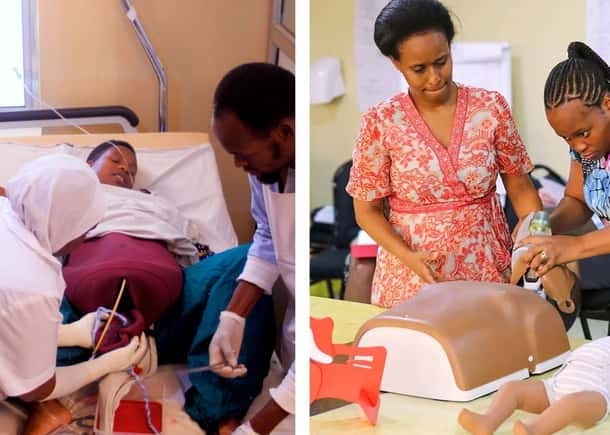Expanding Our Impact: From Birth to Basic Emergency Care


Laerdal Global Health was established in 2010 with the goal of helping save lives at birth. Over the past 15 years, we’ve remained committed to that mission, and we’ve seen encouraging progress, from scaling up Helping Babies Breathe and Helping Mothers Survive to the implementation of the Safer Births Bundle of Care program, which has achieved a 40% reduction in newborn deaths and an extraordinary 75% reduction in maternal deaths.
Our emphasis is on helping, and partnership has been - and will continue to be - the key to lasting success.
As we continue to work tirelessly to further improve health outcomes for mothers and newborns, we are proud to share an exciting expansion of our work, one that builds on our foundation in maternal and newborn health and positions us to help save even more lives. Our goal remains ambitious: helping save one million lives every year by 2030.
To contribute to our goal, we are integrating emergency care into our health system strengthening strategy. In close partnership with the World Health Organization, we are supporting the scale-up of their successful Basic Emergency Care (BEC) program: a proven program implemented in 80 countries that equips frontline providers with the skills to manage time-critical emergencies. Evidence shows that BEC can reduce in-hospital mortality by up to 50% when implemented well, making it a powerful way to prevent unnecessary deaths.
Together with WHO, we have developed an enhanced, more scalable model, featuring a hybrid learning approach and an innovative new Emergency Care Learning Lab for hands-on skills training and shifting training onsite to the facilities.
This expansion of impact is not a shift in focus—it is a natural progression of what we have learned over the years. For years, we have worked alongside communities, health workers, and governments to strengthen care for mothers and newborns. Now, we are applying lessons learned from the Safer Births approach (simulation-based skills and team training, continuous on-site refresher practice, structured debriefing, and data for quality improvement) to strengthen emergency care systems.
Our approach is designed to be scalable and sustainable. Through simulation and skills training, healthcare providers - from nurses and midwives to doctors and clinical officers - are prepared to act when every second matters. And because BEC is highly cost-effective, it can be implemented widely across facilities.
By expanding our reach from helping save lives at birth to emergency care, we are not just helping save more lives, we are supporting strengthening health systems, building provider capacity, and improving workforce confidence and competence. Most importantly, we are addressing some of the major drivers of preventable deaths.
This expansion advances our impact. It leverages our expertise and is driven by our belief that everyone deserves quality care delivered by well-trained healthcare personnel, especially during time-critical emergencies.
Together, with our partners, we will continue to collaborate, innovate, and scale solutions that save lives in the places where it’s needed most.
We’re excited about this new chapter, and at the same time, we remain steadfastly committed to improving maternal and newborn health.